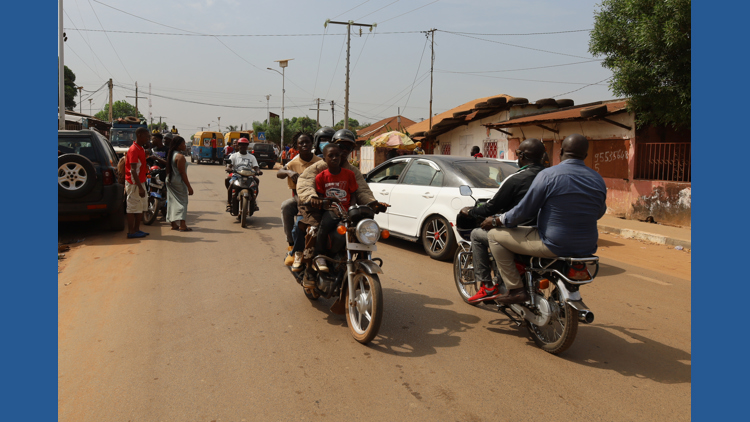The main opposition candidate in Guinea-Bissau, Fernando Dias, has declared victory following a closely contested presidential election, while accusing the incumbent president, Umaro Sissoco Embaló, of orchestrating a coup to avoid defeat. In a video posted online late Wednesday, Dias claimed that the military takeover and Embaló’s reported arrest were “fabricated” events intended to disrupt the expected announcement of election results on Thursday.
Dias, a member of the Social Renewal Party, stated that his claims echoed those of civil society groups. The Associated Press has not independently verified the allegations made by Dias, who is calling for protests against what he describes as a coup. The African Party for the Independence of Guinea and Cape Verde, which was barred from participating in the election, endorsed Dias’s position, with its leader, former Prime Minister Domingos Simões Pereira, backing the opposition candidate.
Despite the turmoil, Thursday morning in the capital, Bissau, life appeared to return to normal, with businesses and public transport gradually resuming operations. Guinea-Bissau, a country of approximately 2.2 million people, has a history of political instability, marked by numerous coups and attempted coups since gaining independence from Portugal over fifty years ago. This latest reported coup follows an attempted military takeover in October and highlights the ongoing struggles for political legitimacy in the nation.
In the wake of the presidential election, gunfire was heard in Bissau, a situation that has become increasingly familiar in West Africa, where military interventions have surged in recent years. Following the tense vote, both Embaló and Dias claimed victory, intensifying the political conflict. Military officers appeared on state television, announcing their seizure of power and citing a purported plan to manipulate electoral results, allegedly involving national politicians and a well-known drug lord.
Umaro Sissoco Embaló, who sought a second term, claimed he had been arrested while the election commission’s office was sealed. Dias, 47, stated in his video that he escaped military custody, promising to resist the alleged coup. “Umaro lost the elections, and instead of accepting the result, he fabricated a coup d’état,” Dias declared. He added, “Once again, we have been the target of false coup d’états. … We will liberate ourselves.”
The recent elections were particularly critical for Guinea-Bissau, as Embaló faced a legitimacy crisis, with the opposition asserting that his time in office had expired. The military’s announcement of the coup cited the “discovery of an ongoing plan … to manipulate electoral results,” according to spokesperson Dinis N’Tchama. He claimed that the scheme involved participation from both domestic and foreign nationals.
The international community has reacted strongly to the reported coup. Several countries and organizations, including the United Nations, have expressed deep concern over the political situation in Guinea-Bissau. As the country grapples with its ongoing challenges, the outcome of this election and the alleged coup will likely have significant implications for its future stability and governance.
